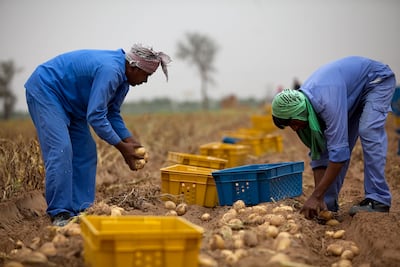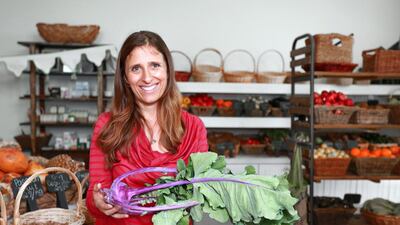Whenever there is talk of eating locally-grown foods and the importance of buying locally-sourced ingredients for the sake of the environment, some people wonder what the food on your plate has to do with climate change and whether paying to support organic farms and local produce is really necessary.
Questions arise as to whether certain food habits and choices can add up to help slow global warming or whether the rate at which it slows is ultimately not significant enough. Well, a major part of the climate challenge does revolve around what we eat. The more people are faced with the facts, the more they might be convinced to support local produce: global food systems represent nearly one-third of all greenhouse gas emissions. In over 24 countries, agriculture is the top source of emissions.
Practices in farming can be harmful for the planet. Each factor in the agriculture business can have a sizeable affect on the climate – from the types and volumes of seeds and fertilizer used to the source of water, as well as the production methods.
A recent report by the Intergovernmental Panel on Climate Change directly links human activity to climate change. It issues a stark warning and call to action for countries and industries. The report says that global food supplies will suffer if temperatures rise above 1.5°C, warning of further changes in rainfall patterns and extreme weather swings. To counter these growing threats, we need global co-operation to boost food security and to drive innovation and economic growth.


Climate action presents a host of opportunities in the area of food security and the UAE is well-positioned to capture these. When the reliance on food imports is reduced it translates into smaller carbon footprint of the foods consumed in the Emirates. So by ramping up local food production, for one, the UAE has made tremendous strides in its national food security strategy.
As Hana Al Hashimi from the office of the UAE Special Envoy for Climate Change succinctly pointed out in a Foreign Policy dialogue: “When we’re talking about agriculture, we’re talking about a sector that is both intrinsically linked to the climate challenge, both in terms of being affected by the challenge but also as a source of solutions.”
There are more than 30,000 farms in the UAE, an astonishing figure given that the country is situated in a water-scarce region. Despite the natural desert conditions, farms such as Greenhart Organics and Emirates Biofarm, among others, practice organic horticulture.
Through sustainable approaches, these farms have reduced reliance on certain fertilizers that account for an estimated 75 per cent of the world’s nitrous oxide emissions. In its place they use compost. Unlike fertilizers that are synthetic and derived from petrochemicals, compost sequesters carbon in the soil and enriches its fertility. Over time, this benefits the land and slashes water usage, while conventional farming practices typically erode soil quality.
As such, the agriculture sector is a specific focus for the UAE. This year the country announced a US-UAE-led plan to address food insecurity – the Agriculture Innovation Mission for Climate joint initiative that will be launched in November at the climate conference, Cop26, in Glasgow.
This Aim for Climate initiative seeks to increase global research and development in the agriculture sector to support climate action. Seventeen countries and counting have since signed on as partners. This is the sort of global co-operation we need in agriculture.
Across the world, farmers are struggling against the effects of droughts, flash floods and soil degradation. If we can produce more food in harsher climates, the world’s most vulnerable populations can access food quicker. Ultimately, lives will be saved. International co-operation must be tailored to localised food security challenges, while addressing climate mitigation and adaptation strategies.
Yet, global partnerships mean very little if the private sector is not involved. Known for undertaking research and development, the private sector can offer innovative solutions to governments and work together towards shared goals with regard to food security.
The IPCC report mentions that multiple regional shifts will affect our food systems. One such change is that the UAE could over the next two decades face a drastic increase in Cooling Degree Days.
Cooling Degree Days – quite the confusing misnomer – is a measurement that tells us how much and for how long outdoor temperatures will exceed a baseline ideal indoor temperature. This means that there will be greater reliance on cooling solutions for everything, from homes and offices to controlled environment agriculture like modern greenhouses and vertical farms. The UAE’s controlled environment agriculture sector is responsible for producing leafy greens and fruits all year-round.
It is possible to maintain these target temperatures under the extreme climate forecast for 2040, but it could become unfeasible for food production. Still, solutions abound from seed genetics technology to developing heat-tolerant varieties of key crops, to improved energy efficiency in greenhouse and vertical farm processes.
The message is clear: this is the critical decade for climate, food and people. We need to act now. To this end, all actors must band together to build a more resilient and robust global food system.
Greg Ohannessian is a founding partner at Soma Mater, a food systems company

